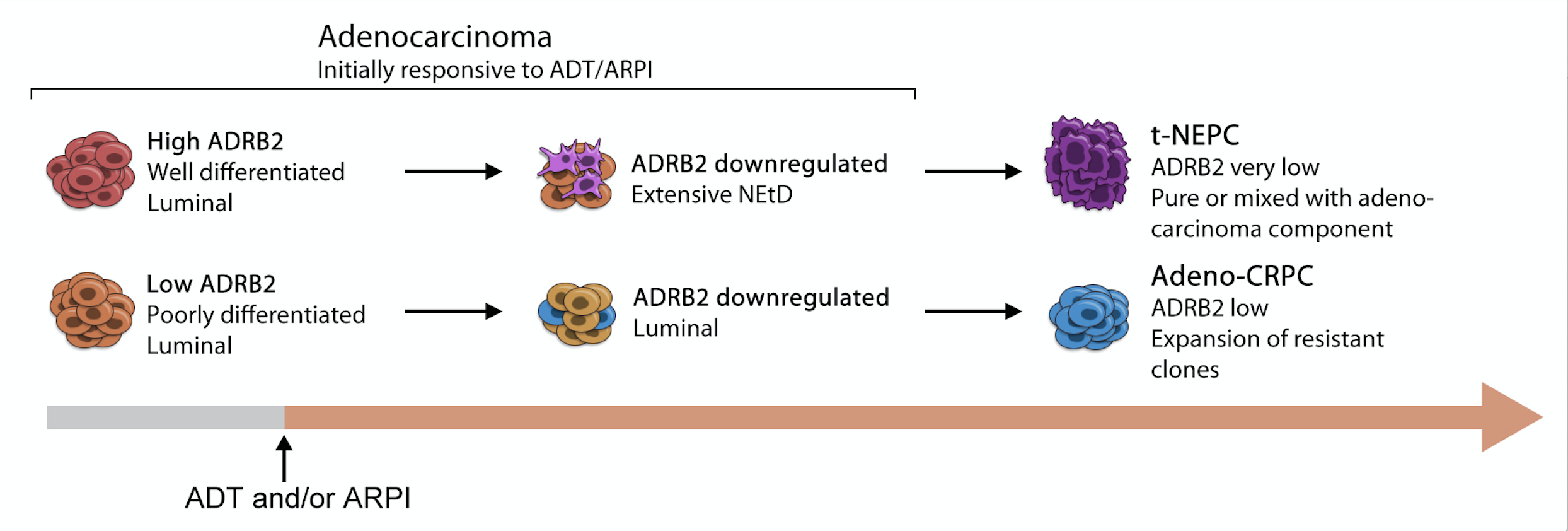Therapy-resistant prostate cancer
Following the rapidly evolving landscape of prostate cancer, the incidence of neuroendocrine and other aggressive variants of prostate cancer is increasing. These variants are highly therapy resistant and has probably been selected for during each round of treatment failure the patients have experienced.
Androgen deprivation therapy (ADT) has been the first line therapy for men with advanced prostate cancer for more than 70 years. ADT resistance is associated with neuroendocrine differentiation (tNED) and may represent the first step towards development of neuroendocrine prostate cancer. We have shown that the level of beat2-adrenergic receptors (ADRB2) is associated with time to development of castration-resistant prostate cancer (CRPC). Down-regulation of ADRB2 in prostate cancer cells up-regulates the level of androgens, by blocking glucuronidation of androgens, and supports thereby development of CRPC variants where hypo-sensitization of the androgen receptor (AR) signaling pathway is the driving force. Thus, low ADRB2 represents a model for AR-driven CRPC, called adeno-CRPC. On the other hand, high level of ADRB2 is required for ADT to induce tNED, assumed to represent a precursor for neuroendocrine prostate cancer. We therefore hypothesis that low ADRB2 is associated with development of AR-dependent CRPC whereas high ADRB2 is associated with tNED and NEPC development.

Project member: Peder Rustøen Braadland
